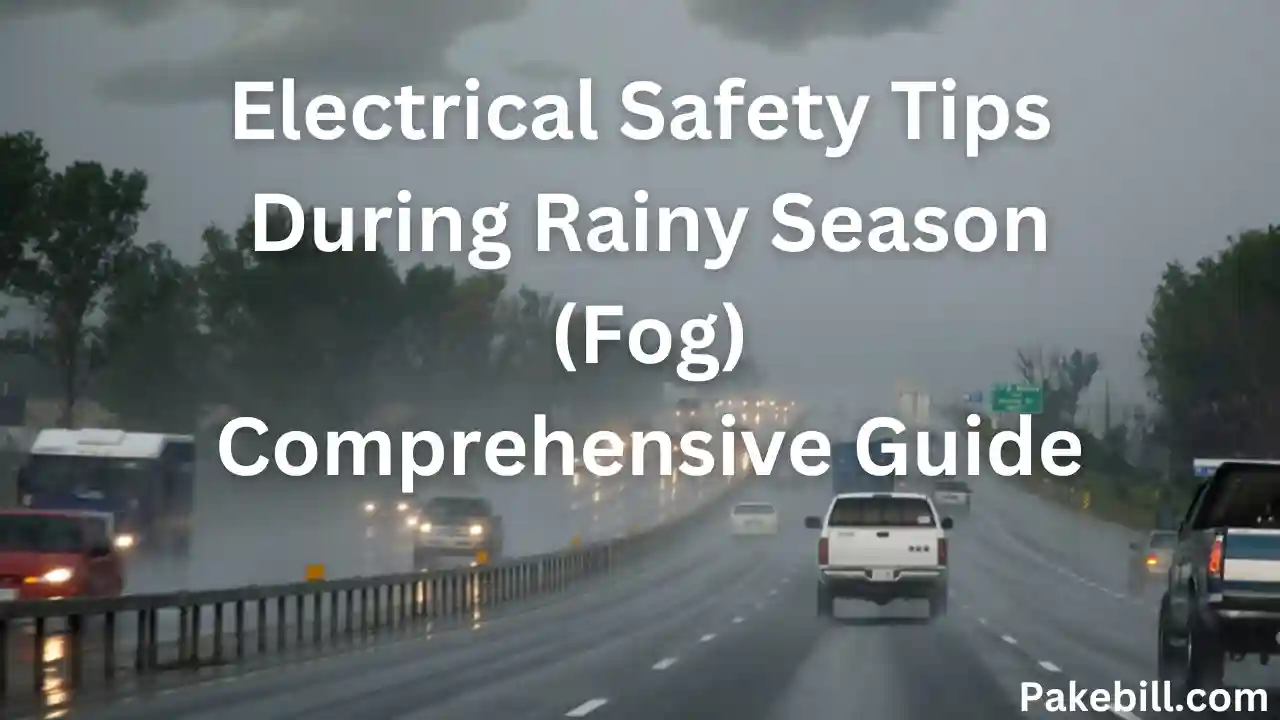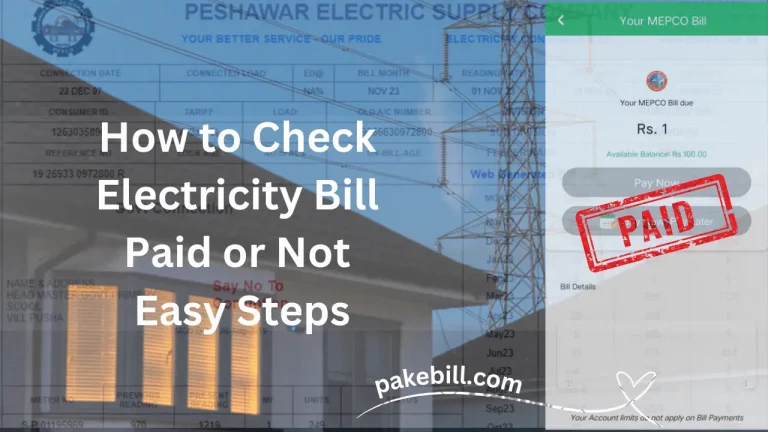Electrical Safety Tips During Rainy Season (Fog) Comprehensive Guide
Introduction
In navigating the challenges posed by the rainy season, ensuring electrical safety becomes paramount. From travel precautions to safeguarding against potential hazards, adopting a comprehensive approach is crucial for a secure and enjoyable rainy season.
Guide to Electrical Safety During Rainy Season (Fog)
Staying safe during rainy and foggy seasons is important, especially when it comes to electricity. Let’s talk about some simple tips to keep you safe. We’ll also check out an easy way to see your electricity bills online.
Travel Precautions
Avoidance of Northern Areas:
- Emphasizing the avoidance of traveling to northern areas during the rainy and monsoon seasons.
- Highlighting the unpredictable weather conditions and associated dangers.
Weather Updates:
- Stressing the significance of checking weather updates before planning any trips.
- Encouraging the use of reliable weather forecasting tools for accurate information.
Traffic Safety
Driving Slow:
- Advising drivers to maintain a slow and attentive pace during rainy weather.
- Emphasizing the increased risk of accidents on wet roads.
Traffic Jam Precautions:
- Cautioning against powerful traffic jams, particularly near D stations.
- Suggesting alternate routes and avoiding congested areas.
Emergency Preparedness
Landline Phone Avoidance:
- Discouraging the use of landline phones during rainy conditions.
- Explaining the potential dangers associated with water and electricity.
Stocked Emergency Kit:
- Encouraging the creation of a stocked emergency kit for unforeseen situations.
- Items may include first aid supplies, non-perishable food, and essential tools.
Driving Tips
Importance of Driving Slow:
- Reinforcing the importance of driving at a reduced speed during rain to prevent accidents.
- Discussing the dangers of hydroplaning and loss of control on wet roads.
Crossing Flooded Areas:
- Advising against crossing flooded areas with strong water currents.
- Highlighting the potential damage to vehicles and risks to personal safety.
Electrical Safety
Equipment Inspection:
- Stressing the need for a thorough inspection of electrical equipment before the monsoon season.
- Identifying and rectifying potential issues to prevent accidents.
Ground Fault Circuit Interrupters (GFCIs):
- Advocating the use of GFCIs to quickly shut off power and prevent electric shocks.
- Installation in areas where water and electricity may come into contact.
Cord Maintenance:
- Encouraging regular checks of electrical cords for signs of damage.
- Immediate replacement of damaged cords to eliminate hazards.
Safety during Floods
Avoiding Fallen Power Lines:
- Cautioning against staying away from fallen power lines during floods.
- Prompt reporting of fallen lines to authorities for swift action.
Thunderstorm Safety:
- Advising on precautions during thunderstorms to protect electrical appliances.
- Suggesting the unplugging of devices to prevent damage from lightning strikes.
Emergency Plan
Preparation for Power Outages:
- Developing an emergency plan for power outages and electrical emergencies.
- Keeping essential items like flashlights and emergency contact numbers easily accessible.
Quick Supply Source Switch-Off:
- Ensuring easy access to switch off the power supply source quickly in case of an emergency.
Outdoor Wiring
Secure Outdoor Wiring:
- Guidelines for securing outdoor wiring against heavy rains and strong winds.
- Use of waterproof sockets and fixtures to prevent water-related issues.
Efficient Electricity Supply
Exposed Connections Check:
- Regular checks of exposed connections and securing them with waterproof fixtures.
- Preventing potential short circuits and electrical hazards.
General Safety Tips during Rainy Season
Caution While Driving:
- Detailed precautions for safe driving on bad roads during the rainy season.
- Emphasizing the need for cautious and slow driving practices.
Avoidance of Hazardous Areas:
- Encouraging avoidance of standing under trees, signboards, and pillars during heavy rains.
- Highlighting the risks associated with such actions, including potential accidents.
Snake Bite Prevention:
- Discussing the increased likelihood of snake bites during the rainy season.
- Advising on precautions to reduce the risk, especially in flood-prone areas.
Childproofing:
- Ensuring power sockets and bins are childproof to prevent accidents.
- Promoting a safe environment for children during the rainy season.
Disadvantages
While these comprehensive safety measures provide effective protection, some disadvantages may include:
- Inconvenience: Strict adherence to safety measures may cause inconvenience or delays in daily activities.
- Cost: Implementing safety measures, such as the installation of GFCIs or waterproof fixtures, may involve initial costs.
- Dependency on Technology: Relying on weather forecasting tools may not be foolproof, and technology may have limitations.
Conclusion
In conclusion, a holistic approach to electrical safety during the rainy season encompasses various facets of daily life. By adopting these comprehensive safety tips, individuals can navigate the challenges posed by the weather, ensuring a secure and enjoyable rainy season for themselves and their communities.






